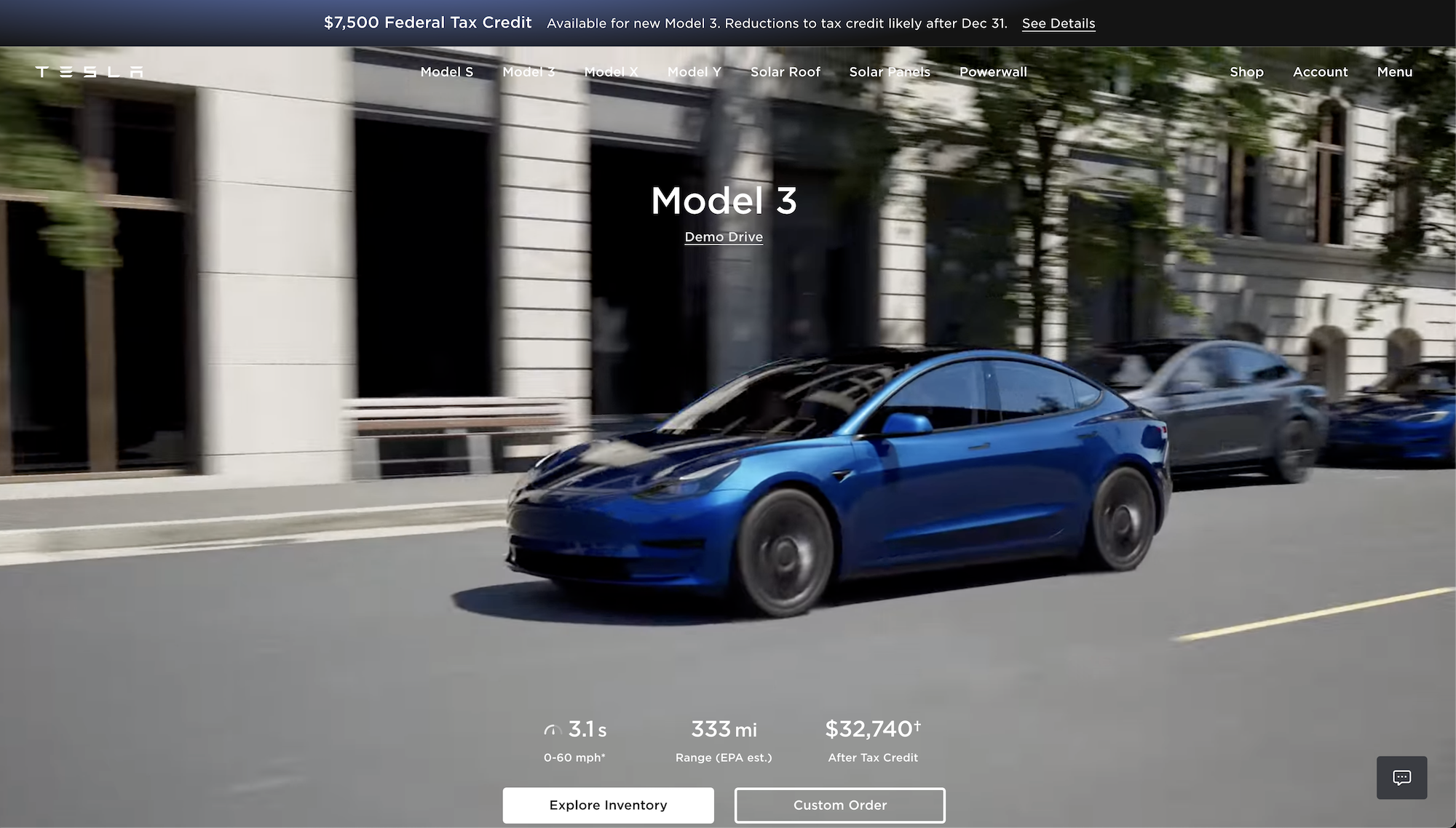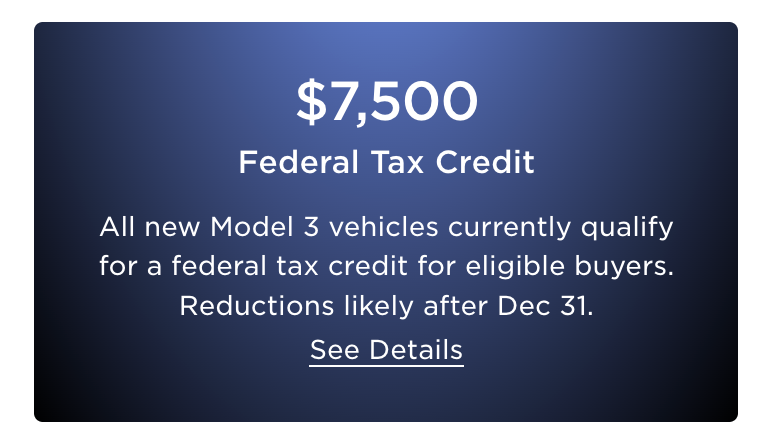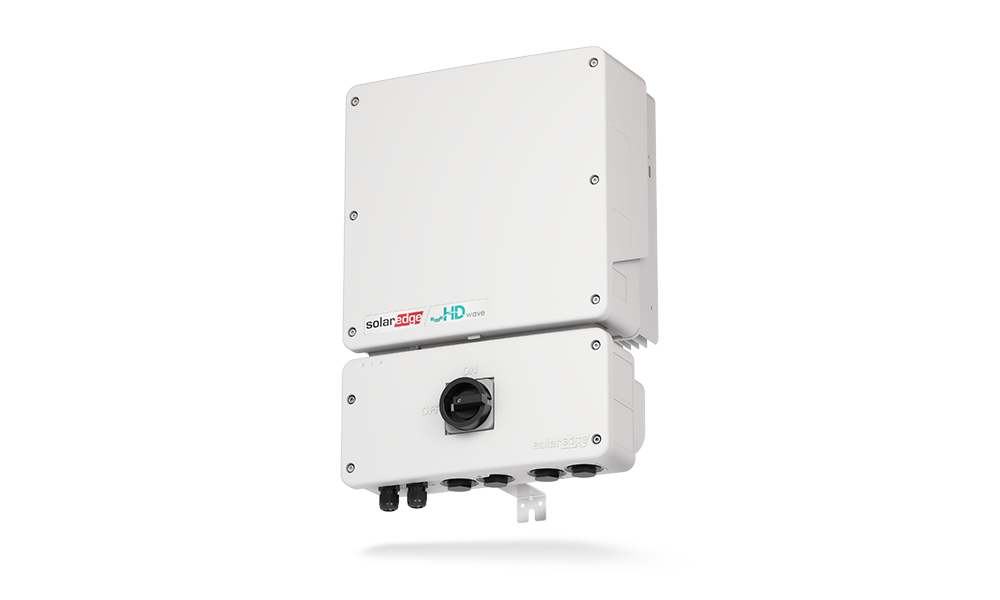
As we’ve reported many times, only a handful of automakers have electric vehicles on the US market that are eligible for the full $7,500 consumer tax credit. The cars and the batteries need to be produced here. The most popular electric vehicles in the US do qualify for the tax credit. That would be the Tesla Model Y, Tesla Model 3, Chevy Bolt, and Volkswagen ID.4.
It seems that electric cars that don’t qualify for the tax credit are often struggling to find buyers, though. Those four vehicles noted above were the top sellers before the tax credit changes, but there’s no doubt that having a $7,500 benefit over other EVs helps them sell even more. If that tax credit is going to go away or be reduced for them, though, that also means present-day units of that model also have an advantage over future versions.
So, what is the deal with Tesla?
This is what you see on the Tesla website for the US right now:
It’s just the middle of July. First of all, why is Tesla putting these notifications up right now? One reason might be stimulating demand — to encourage people to buy now. Another reason maybe that Tesla’s order log often goes 6+ months and the company wants to make sure people are ordering now if they are expecting to get the full tax credit.
The thing that’s going on with the tax credit is the rules around it get more strict as time marches on, and maybe Tesla realizes or is concerned that due to where various battery minerals come from, its cars will no longer qualify for the full tax credit on January 1, 2024.
There’s also some speculation that Tesla’s batteries will be changing and coming from China more, but that’s not the issue. If that was the issue, the change wouldn’t take place on January 1, 2024. This is a regulation matter.
It’s a fairly small change in policy from 2023 to 2024. To qualify for the full tax credit today, 40% of battery minerals and 50% of battery components must be produced in North America. To qualify for the full tax credit in 2024, 50% of battery minerals and 60% of battery components must be produced in North America. Does Tesla expect its cars (or perhaps some of its cars) will lose the full tax credit because they meet the 40% and 50% requirements but won’t meet the 50% and 60% requirements? It seems like it.
All of this said, one has to think Tesla is working on onshoring more of its batteries in North America. It’s obviously dabbled in lithium extraction for a while and is building a lithium refinery in Texas. The company also produces batteries here. So, perhaps it will find a way to retain the full tax credit, but maybe it can’t guarantee that yet and is trying to cover all of its bases by letting customers know things might change.
I don’t like paywalls. You don’t like paywalls. Who likes paywalls? Here at CleanTechnica, we implemented a limited paywall for a while, but it always felt wrong — and it was always tough to decide what we should put behind there. In theory, your most exclusive and best content goes behind a paywall. But then fewer people read it! We just don’t like paywalls, and so we’ve decided to ditch ours. Unfortunately, the media business is still a tough, cut-throat business with tiny margins. It’s a never-ending Olympic challenge to stay above water or even perhaps — gasp — grow. So …
Sign up for daily news updates from CleanTechnica on email. Or follow us on Google News!
Have a tip for CleanTechnica, want to advertise, or want to suggest a guest for our CleanTech Talk podcast? Contact us here.
Former Tesla Battery Expert Leading Lyten Into New Lithium-Sulfur Battery Era:
CleanTechnica uses affiliate links. See our policy here.






